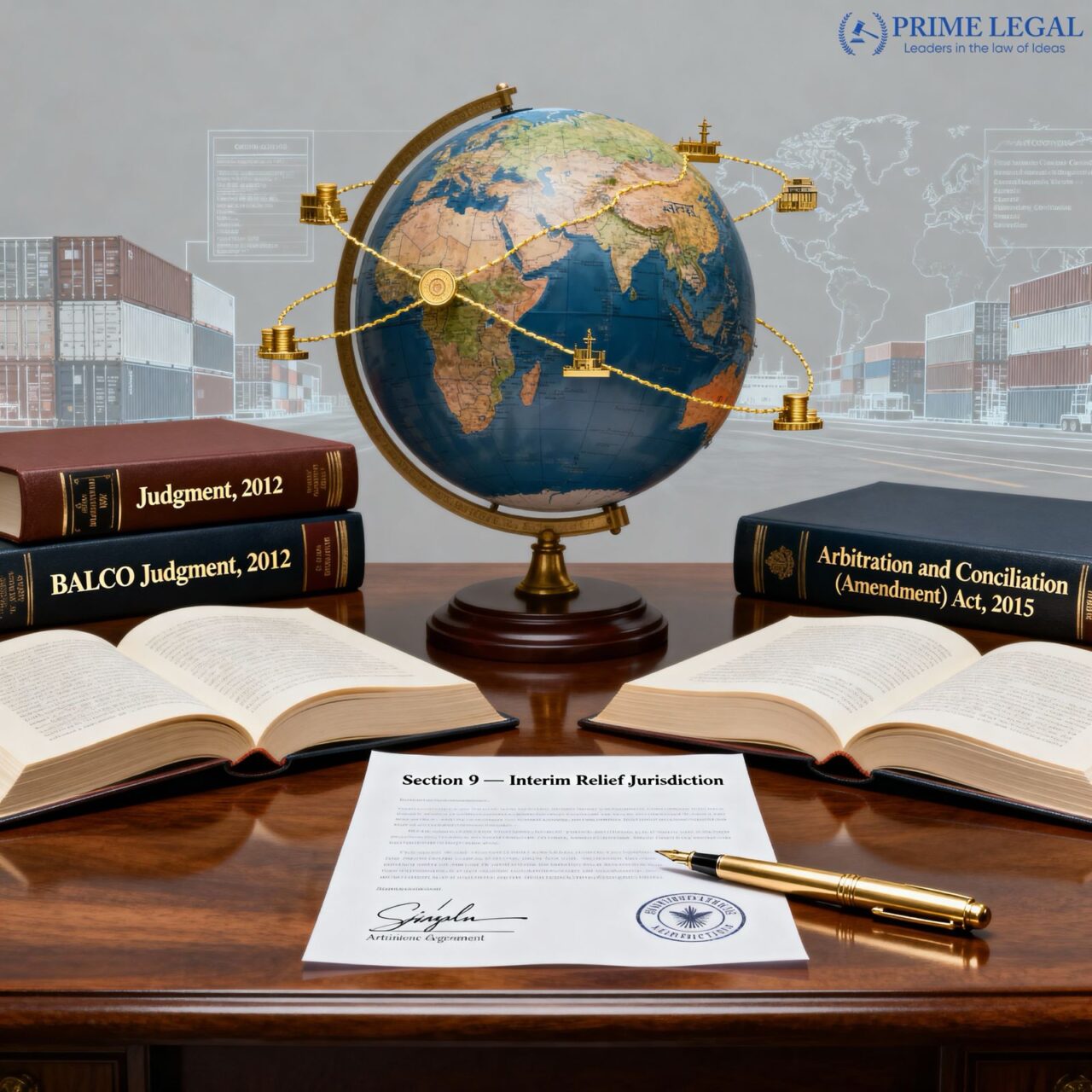By Ayantika Mondal,
Partner,
Prime Legal
Section 9 of the Arbitration and Conciliation Act, 1996 allows parties to approach Indian courts for interim measures—such as freezing assets, preserving property, or protecting evidence—before, during, or after arbitration. Over time, this single provision has become one of the most debated features of Indian arbitration law, especially in cross-border disputes. Its journey from the Supreme Court’s landmark ruling in Bharat Aluminium Co. v. Kaiser Aluminium Technical Services Inc. (2012) 9 SCC 552 (BALCO) to the 2015 legislative amendment tells a story of how Indian law evolved from strict territorial limits to a more practical, globally aligned approach.
Before 2012, Indian courts often entertained Section 9 applications even for arbitrations seated outside India. This was based on the interpretation given in Bhatia International v. Bulk Trading S.A., (2002) 4 SCC 105, where the Supreme Court held that Part I of the Act, including Section 9, could apply to foreign-seated arbitrations unless the parties had expressly excluded it. This approach, though well-intentioned, led to heavy judicial interference and blurred the line between domestic and international arbitration.
The BALCO judgment in 2012 brought much-needed clarity. The Supreme Court overruled Bhatia International and held that Part I of the Act applies only to arbitrations seated in India. It emphasized that the Act follows the UNCITRAL Model Law on International Commercial Arbitration, which is based on the principle of territoriality—meaning the law of the seat governs the arbitration. Under this framework, Indian courts could not grant interim measures under Section 9 in support of arbitrations seated abroad. In simple terms, if the arbitration was happening in London, Singapore, or Paris, Indian courts could not be approached for injunctions or asset protection, even if the assets were in India.
While BALCO aligned Indian law with international standards, it created real-world problems. Indian companies involved in foreign-seated arbitrations suddenly had no way to protect their assets in India. For example, if a party feared that the other side would sell or transfer property located in India before the arbitration concluded, it could no longer seek a Section 9 injunction from an Indian court. The only option was to approach foreign courts, whose orders had no direct enforceability in India. Recognizing the potential hardship, the Supreme Court applied BALCO prospectively, meaning it would only affect arbitration agreements signed after 6 September 2012. Still, the gap it created made parties wary of choosing foreign seats for arbitration.
To address this gap, Parliament passed the Arbitration and Conciliation (Amendment) Act, 2015. The amendment inserted a proviso to Section 2(2), extending certain provisions of Part I—including Section 9, Section 27 (court assistance in evidence), and Section 37(1)(a) (appeals)—to international commercial arbitrations seated outside India, unless the parties agree otherwise. This small but significant change restored the ability of Indian courts to grant interim measures in aid of foreign-seated arbitrations where assets, evidence, or parties are located in India. In effect, it reintroduced a safety net for Indian parties without undermining the territorial principle affirmed in BALCO.
After the amendment, Indian courts have embraced a more balanced, cooperative role. In Raffles Design International India Pvt. Ltd. v. Educomp Professional Education Ltd., 2016 SCC OnLine Del 5521, the Delhi High Court confirmed that Indian courts could grant interim relief under Section 9 to support a foreign-seated arbitration unless the parties had expressly excluded it. Later, in Amazon.com NV Investment Holdings LLC v. Future Retail Ltd., (2022) 1 SCC 209, the Supreme Court went a step further by recognizing that even emergency arbitrator awards from foreign-seated proceedings could be enforced in India under Section 9 read with Section 17(2). These judgments reflect a modern, pragmatic understanding of arbitration—where Indian courts assist, rather than interfere with, the arbitral process.
The practical impact of this evolution has been substantial. Indian parties to cross-border contracts can now safely choose neutral foreign seats like Singapore or London, knowing that Indian courts remain available for urgent protection of assets or evidence. The amendment has also enhanced India’s reputation as an arbitration-friendly jurisdiction that respects international comity but remains commercially realistic.
In essence, BALCO and the 2015 Amendment together have struck a fine balance. BALCO restored doctrinal discipline by reaffirming the territorial nature of arbitration, while the 2015 Amendment added a pragmatic layer, ensuring that justice and fairness are not lost in rigid formalism. Today, Indian courts do not supervise foreign-seated arbitrations—but they can support them when justice requires it. This balance has transformed India into a jurisdiction that is both seat-neutral and enforcement-friendly, in harmony with the global arbitration framework envisioned under the UNCITRAL Model Law.
References
- Bhatia International v. Bulk Trading S.A., (2002) 4 SCC 105.
- Venture Global Engineering v. Satyam Computer Services Ltd., (2008) 4 SCC 190.
- Bharat Aluminium Co. v. Kaiser Aluminium Technical Services Inc., (2012) 9 SCC 552.
- Raffles Design International India Pvt. Ltd. v. Educomp Professional Education Ltd., 2016 SCC OnLine Del 5521.
- Amazon.com NV Investment Holdings LLC v. Future Retail Ltd., (2022) 1 SCC 209.
- UNCITRAL Model Law on International Commercial Arbitration, 1985 (as amended 2006).
- Arbitration and Conciliation (Amendment) Act, 2015, s. 2(2) proviso.


